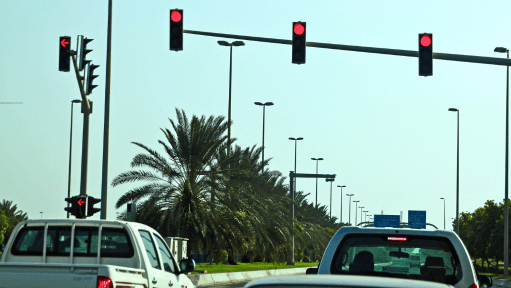
Jumping a Red Light in the UAE: Penalties and Road Safety Under New Traffic Laws
Dh50,000 Fines, Vehicle Impoundment, and Stricter Penalties to Deter Reckless Driving
The UAE has long prioritized road safety, implementing stringent traffic laws to protect drivers, passengers, and pedestrians. Among the most severe violations is jumping a red light, an act that poses grave risks to all road users. With the recent amendments to the UAE traffic law, penalties for this offense have become even stricter, reflecting the country’s zero-tolerance approach toward traffic violations.
Hefty Fines and Stricter Consequences
Under the updated traffic regulations, jumping a red light can lead to fines of up to Dh50,000, along with other penalties such as black points on the driver’s license and vehicle impoundment. These measures aim to deter reckless driving behaviors and reduce the number of accidents caused by such violations.
Key Penalties for Jumping a Red Light:
- Fine: Up to Dh50,000, depending on the severity of the offense.
- Black Points: 12 black points are added to the offender’s driving record.
- Vehicle Impoundment: The vehicle may be confiscated for up to 30 days, with an additional fee required for its release.
The fine amount and additional penalties are determined by the severity of the violation, whether it resulted in an accident, injury, or fatality. Drivers who fail to settle impoundment fines within the specified period risk having their vehicle permanently seized.
Stricter Penalties for Fatal Accidents
Jumping a red light is often associated with high-speed collisions, which can lead to fatal accidents. The revised traffic law imposes even harsher penalties for cases involving fatalities, including the possibility of imprisonment and higher fines. Courts may also decide to revoke the driver’s license, prohibiting them from driving for an extended period or permanently.
In some cases, the offender may be required to pay blood money (diya), a form of financial compensation to the victim’s family. The amount is determined by Sharia law and the specifics of the case.
Technology in Enforcing Traffic Laws
To ensure compliance with traffic laws, the UAE has adopted advanced technologies such as smart cameras, radar systems, and AI-based monitoring. These tools detect and document violations like red-light jumping in real-time, making it nearly impossible for offenders to escape penalties.
Smart traffic systems not only capture violations but also provide data to improve road safety measures. For instance, intersections with higher rates of red-light violations are often redesigned to minimize risks.
Rationale Behind the Strict Measures
The UAE’s approach to traffic violations is rooted in its commitment to reducing road fatalities. Jumping a red light disrupts the flow of traffic, increases the likelihood of accidents, and endangers lives. Stricter penalties serve as a deterrent, ensuring drivers think twice before engaging in reckless behaviors.
The World Health Organization (WHO) reports that road accidents are one of the leading causes of death globally. The UAE’s traffic reforms are aligned with its Vision 2021 and Vision 2030 goals to enhance public safety and achieve a world-class transportation infrastructure.
How to Avoid Penalties
Drivers can avoid hefty fines and penalties by adhering to the following guidelines:
- Always Stop at Red Lights: Never try to beat the signal; wait until it turns green.
- Stay Within Speed Limits: Speeding increases the chances of not being able to stop in time.
- Pay Attention to Traffic Signs: Ensure full awareness of traffic signals and road markings.
- Use Defensive Driving Techniques: Anticipate the actions of other drivers to avoid sudden stops or risky maneuvers.
Awareness Campaigns and Initiatives
The UAE government and traffic authorities regularly conduct awareness campaigns to educate drivers about the consequences of red-light violations. These initiatives include:
-
Road Safety Workshops: Sessions targeting high-risk drivers, such as delivery drivers and young motorists.
-
Public Awareness Drives: Use of social media, TV, and print ads to spread safety messages.
-
Driver Training Programs: Focused on improving knowledge of traffic rules and defensive driving techniques.
Conclusion
Jumping a red light is a dangerous and costly mistake in the UAE. With fines reaching up to Dh50,000, black points, and the possibility of vehicle impoundment, the government is sending a strong message to deter reckless driving. The updated traffic laws underscore the UAE’s commitment to road safety, ensuring that drivers prioritize caution and compliance to protect themselves and others.
By adhering to traffic laws and embracing a culture of safety, residents and visitors alike can contribute to the UAE’s vision of creating safer roads for everyone.
For any enquiries or information, contact ask@tlr.ae or call us on +971 52 644 3004. Follow The Law Reporters on WhatsApp Channels